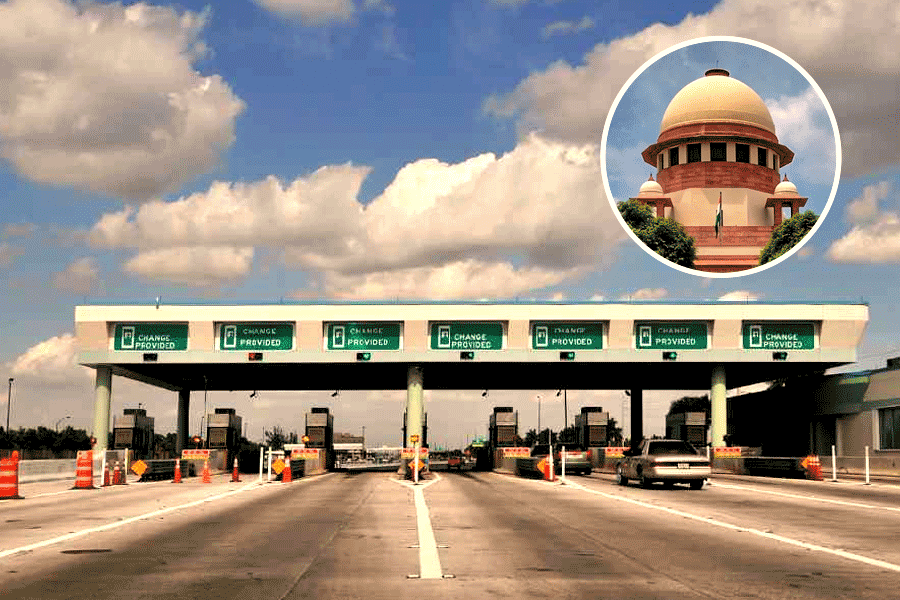The Supreme Court on Monday asked the NHAI why should a commuter be asked to pay Rs 150 toll if it took 12 hours to cover a 65-kilometer highway stretch in Thrissur, Kerala.
A bench comprising Chief Justice B R Gavai and Justices K Vinod Chandran and N V Anjaria made the remark while reserving its verdict on pleas filed by the National Highways Authority of India (NHAI) and concessionaire, Guruvayoor Infrastructure challenging the Kerala High Court’s order suspending toll collection at the Paliyekkara toll plaza in Thrissur.
"Why should a person pay Rs 150 if it takes 12 hours for him to get from one end of the road to the other end? A road which is expected to take one hour, takes 11 more hours and they have to pay a toll as well,” the CJI said.
During the hearing, the bench was informed about a nearly 12-hour traffic snarl on the stretch on the weekend.
The toll suspension was ordered by the high court on August 6 on the ground of poor condition of the Edappally–Mannuthy stretch of National Highway 544 and severe traffic congestion caused by ongoing works.
"We will consider everything, reserve for orders," the bench said after hearing Solicitor General Tushar Mehta, appearing for the NHAI, and senior advocate Shyam Divan for the concessionaire.
Justice Chandran said the accident which triggered the block was not a mere “act of God” as argued by Mehta, but caused by a lorry toppling into a pothole.
Mehta said the NHAI provided service roads where underpass construction was underway but admitted monsoon rains had slowed the progress.
He also cited a precedent suggesting proportionate toll reduction rather than suspension.
Justice Chandran, however, remarked a 12-hour ordeal was far beyond any proportional adjustment.
The concessionaire said it had maintained the 60 kilometer under its control and blamed third-party contractors, including PSG Engineering, for the service road bottlenecks.
“My revenue stream cannot be stopped when I am not responsible for the work entrusted to others. The impact on me has already been Rs 5–6 crore in just 10 days,” Divan said, terming high court’s order as “grossly unfair.” The bench said the high court allowed the concessionaire to raise claims against the NHAI for losses.
Divan said it was inadequate as day-to-day maintenance costs continued while revenue halted.
Appearing for the original petitioners before the high court, senior advocate Jayant Muthraj calling it NHAI's responsibility to ensure a motorable road.
He said the toll collection amid such conditions violated public trust while referring to the high court's interim directions before resorting to toll suspension as a “last resort.” On August 14, the top court expressed its unwillingness to interfere with the high court order suspending toll collection.
The high court on August 6 ordered a four-week suspension of toll collection, observing that motorists could not be charged when the highway was badly maintained and traffic congestion was severe.
It said the relationship between the public and the NHAI was one of “public trust” and that failure to maintain smooth traffic flow breached that trust.
Except for the headline, this story has not been edited by The Telegraph Online staff and has been published from a syndicated feed.











